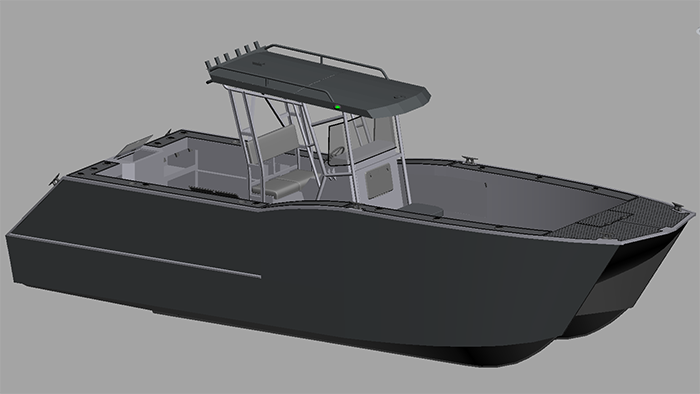Whether used for daysailing, world cruising, chartering or fishing, boats with two hulls are growing in acceptance and appeal. The basic design of catamaran may be hundreds of years old but today’s updated designs make catamarans a viable option for any boater.
The Draft (depth below waterline) of the catamaran depends on the size and type of cat. Small daysailing cats can draw mere inches but with a large cruising cat, it may be 3-4 feet. Some cats have dagger boards that are used to improve upwind performance. With the boards down, a cat can draw 10 feet or more but these boards may be lifted to allow access to shallow water.
Catamarans make fine racers as has been proven by the America's Cup contenders. There are also one-design classes in the smaller, open designs.
There are some inherent advantages of boats with multiple hulls, which include:
More deck and interior space per foot than monohulls. A catamaran has about 1.2 times the space of a monohull. In other words, a 40-foot cat should have the deck and interior space of a 50-foot monohull. Cats also have more interior space with up to four cabins even in a vessel under 40 feet in length. These large cabins usually provide easier berth access and they have hull windows with opening ports for better ventilation and light even in the staterooms, which are usually more separated for privacy.
Due to their design with two hulls set wide apart, cats enjoy greater stability under way and at rest in rolly anchorages. Unlike a monohull that can heel under sail or roll when powered, cats stay level, which makes them safer and easier for people and pets to maneuver on the flat deck. Some say cats have an easier motion than monohulls and tend to induce less seasickness.
With twin engines, cats’ propellers are set wide apart so these boats have excellent maneuverability. Cats can venture into shallower waters too – especially sailing cats that don’t have deep keels. Because cats don’t drag a massive keel through the water, they’re also on average 20-30 percent more fuel-efficient even with two engines.
Larger, more sophisticated power and sailing catamarans have a natural redundancy built into their equipment inventory, which translates to comfort and safety. For example, if a fresh water pump fails in one hull, there’s usually another to provide water for washing up. If one engine fails or one propeller spins off, there’s another to get the vessel to homeport safely. There’s also more room for the installation of additional systems like generators, watermakers, battery banks, and more.
Are catamarans more expensive than monohulls? Yes, purchasing or chartering a catamaran is usually more expensive than a monohull since there are more accessories and even more fiberglass construction to pay for. Over time, cost of ownership can be higher too since there are two hulls to polish and wax and more equipment to service or replace. It’s also more expensive to haul out a catamaran for bottom work.
7.9m:
Boat Hull Length: 7.9m, DWL: 0.45m, Topsides:5mm
Beam of Boat: 2.46m, Fuel Tank: 400L, Bottomsides: 5mm
Depth of Boat: 1.6m, Passengers: 6, Transom: 6mm



































